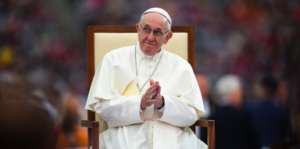On August 14, a Pennsylvania grand jury reported that more than 300 priests across the state sexually abused over 1,000 children in a span of 70 years. The Catholic Church employed a “systematic cover-up” to protect these predators, handling allegations internally and moving abusive priests to different parishes. Some bishops and cardinals purposefully covered up numerous crimes to aid the overarching goal of protecting the Church’s “brand.”
Changes must be made to ensure that priests can no longer escape punishment for their crimes, and the Catholic Church can no longer conceal these crimes. Primarily, those who committed or aided crimes must be held accountable. It has become clear that the Church will not initiate any change on its own; the Church’s hierarchical system is not to be trusted. Many cases of abuse were reported directly to church officials and documented in secret files. The grand jury stated that the Church assigned clergy members to “make credibility determinations about the colleagues with whom they live and work” to protect their positions in the Catholic Church.
At the same time, the Vatican has only reluctantly addressed this and other such scandals. In 2015, Pope Francis vowed, “I commit myself to ensuring that the Church makes every effort to protect minors, and I promise that those responsible will be held to account.” So far, he has failed to follow through. Pope Francis called for the presidents of Catholic Bishops Conferences to meet in February, but this is simply insufficient. He aims to discuss how to stop clergy from sexually abusing children, yet completely overlooks the decades of abuse that the Catholic Church allowed and perpetuated.
It is not enough to prevent future crimes by the Catholic Church — its vicious past must be addressed. First, adults who suffered abuse as children deserve support and compensation. Second, the criminal statute of limitations for sexually abusing children, which allows the church to escape the crimes committed decades ago by their clergy, must be eliminated. In more than half the states in the United States, there is no statute of limitations for child molestation. In other words, no matter how long it takes to come forward, a victim can still seek justice. Yet in Pennsylvania, nearly every instance of abuse found by the grand jury is too old to be prosecuted. The statute of limitations only served to assist the Catholic Church in concealing child sexual crimes; abusers knew that by outrunning the statute, they’d one day be immune to legal action. It is shameful that the majority of these victims, now adults, are legally prevented from prosecuting their abusers.
Penalties for failing to report child abuse must also be clarified. Reporting child abusers is the law, yet many times the Catholic Church took advantage of loopholes to evade responsibility. Pennsylvania’s law, though rewritten in recent years, still gives the clergy ways to avoid making reports. It punishes failure to report if “the person knows or has reasonable cause to believe the child is actively being subjected to child abuse.” But it is just as important to report past instances of child abuse. Laws across all states must be made foolproof to ensure that the church legally has no choice but to inform authorities of abuse.
The cycle of abuse has gone on for too long. Pennsylvania’s grand jury findings are just one scandal of many — both in the United States and worldwide. Many attorney generals have begun to investigate sexual abuse by Catholic priests in their states, demonstrating yet again that change is unlikely to come from within the Catholic Church. We must unite on a global scale to enact reform and ensure that the Catholic Church can never again abuse children nor escape unscathed from its crimes.





